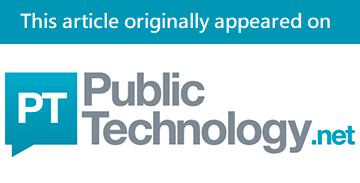The government has formally launched a watchdog function to assure the use of digital identities.
Plans to create the Office for Digital Identities and Attributes (OfDIA) – as part of what was then the Department for Digital, Culture, Media and Sport – were first unveiled by the previous administration in March 2022 to serve as the “interim governing body” for the use of digital IDs. The unit is now up and running in the Department for Science, Innovation and Technology and was publicly unveiled last week.
 According to OfDIA’s newly created GOV.UK page, it will be “responsible for enabling a trusted and secure digital identity market”. The site outlines five core ways in which it will do so.
According to OfDIA’s newly created GOV.UK page, it will be “responsible for enabling a trusted and secure digital identity market”. The site outlines five core ways in which it will do so.
The first of these is in “developing and maintaining the UK digital identity and attributes trust framework”, while the second will be in operating the register of organisations that have accredited against the requirements of the framework.
The latest online data set shows that there are currently 49 outfits that have certified to support one or more of three types of checks where the use of digital is enabled: Right to Work; Right to Rent; and Disclosure and Barring Service.
OfDIA will also oversee the issuance of a trust mark to these firms “that provides a convenient visual way for citizens and businesses to identify registered digital identity services”.
Another of the unit’s responsibilities will be “engaging internationally to support development of digital identities that are interoperable and reusable”.
Its remit also includes “encouraging the market to grow in a way which supports inclusion, with the aim of making sure digital identity services can be accessed by all those who choose to use them”.
The office will be led by chief executive Hannah Rutter (pictured above), who has held senior digital identity roles at DCMS and, latterly, DSIT for the past seven years. Prior to that, she worked in various posts at the Cabinet Office, as well as spending a year at the then Department of Health.
In a newly published blog post, Rutter said that OfDIA will seek to address landscape in which “to prove who you are across the economy today, you have to use a patchwork of paperwork from the government and the private sector”.
“There is a better way to check that someone is who they say they are,” she added.
“Digital identity can make people’s lives easier, and unlock billions of pounds of economic growth. We’re doing this without any form of government identity card. This system does not involve a centralised database. Using a digital identity will be completely voluntary. You will be in control of your data and who it is shared with. Instead, you’ll be able to choose from a range of digital identity and attribute providers, based in the private and charities sectors. The provider will do the hard work of proving that you are who you say you are.
"Eventually, you’ll be able to re-use your digital identity across the economy, sharing only what is needed, when it is needed, and making the process of proving your identity fast, easy and safe.”